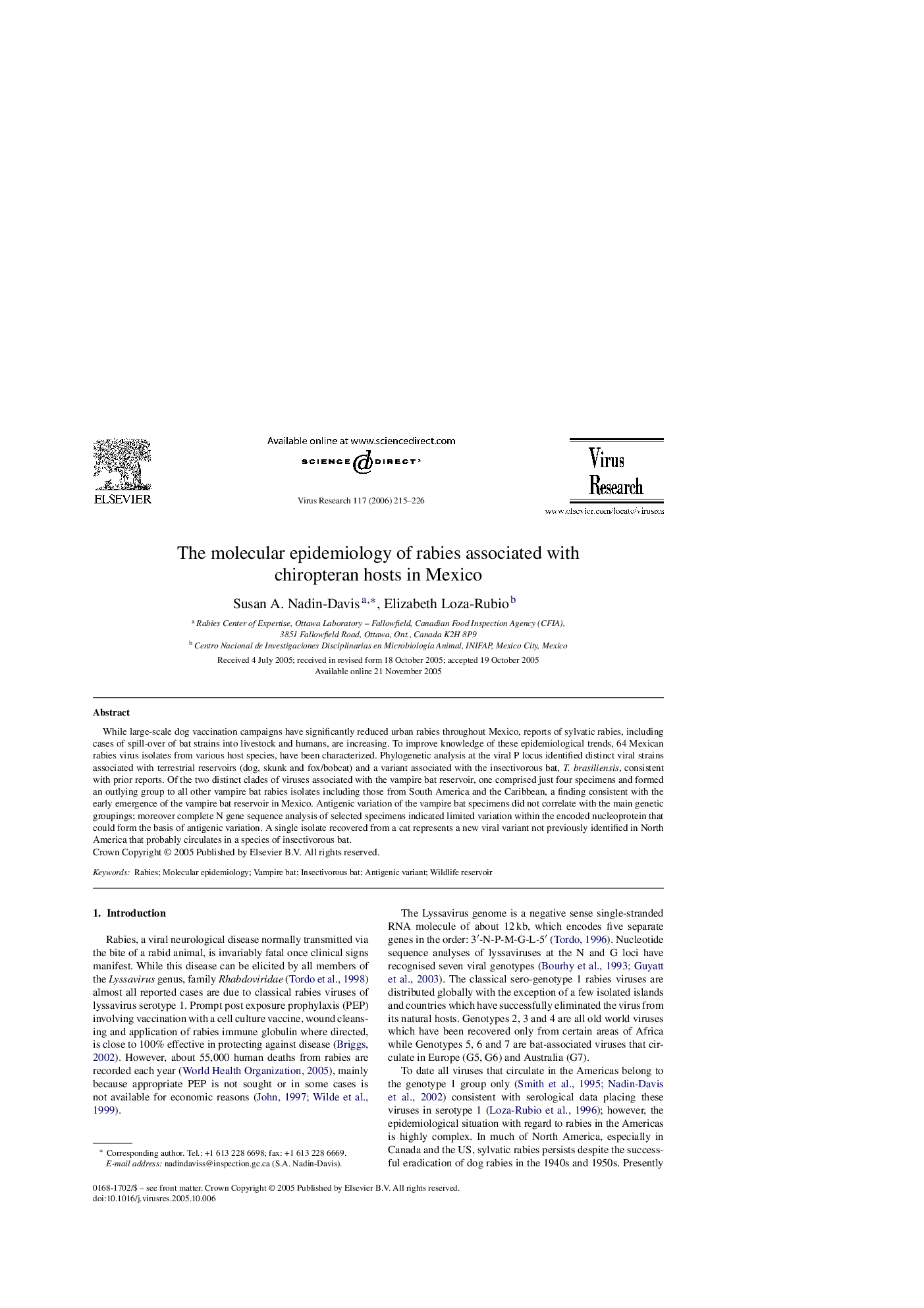| Article ID | Journal | Published Year | Pages | File Type |
|---|---|---|---|---|
| 3431308 | Virus Research | 2006 | 12 Pages |
While large-scale dog vaccination campaigns have significantly reduced urban rabies throughout Mexico, reports of sylvatic rabies, including cases of spill-over of bat strains into livestock and humans, are increasing. To improve knowledge of these epidemiological trends, 64 Mexican rabies virus isolates from various host species, have been characterized. Phylogenetic analysis at the viral P locus identified distinct viral strains associated with terrestrial reservoirs (dog, skunk and fox/bobcat) and a variant associated with the insectivorous bat, T. brasiliensis, consistent with prior reports. Of the two distinct clades of viruses associated with the vampire bat reservoir, one comprised just four specimens and formed an outlying group to all other vampire bat rabies isolates including those from South America and the Caribbean, a finding consistent with the early emergence of the vampire bat reservoir in Mexico. Antigenic variation of the vampire bat specimens did not correlate with the main genetic groupings; moreover complete N gene sequence analysis of selected specimens indicated limited variation within the encoded nucleoprotein that could form the basis of antigenic variation. A single isolate recovered from a cat represents a new viral variant not previously identified in North America that probably circulates in a species of insectivorous bat.
